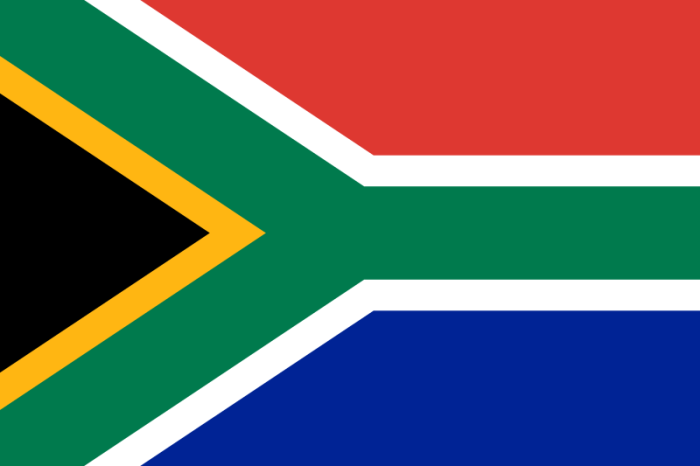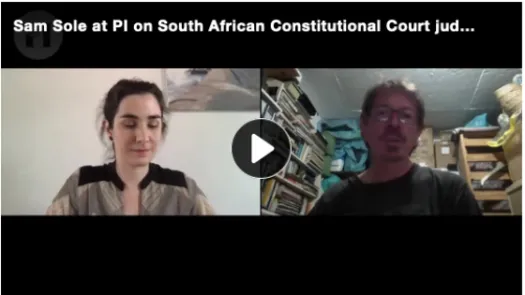amaBhungane and Sole challenge
PI intervened in the case challenging the constitutionality of South African surveillance law.
On 4 April 2019, Privacy International (PI) together with Right 2 Know Campaign (R2K), submitted an amicus curiae to assist the High Court of South Africa in Pretoria in the amaBhungane RICA case.
The applicants, the amaBhungane Centre for Investigative Journalism NPC and Stephen Partick Sole, challenge the constitutionality of the Regulation of Interception of Communications and Provisions of Communication – Related Information Act 70 of 2002 (RICA) and the National Security Intelligence Act 39 of 1994 (NSIA). They argue that RICA and NSIA violates the right to privacy.
PI and R2K's intervention provided evidence that mandatory blanket retention of all users' communications data – information about when, where, how and with whom they communicate – violates international human rights law and it is therefore unconstitutional. It further supported that indiscriminate bulk interception of foreign signals – which translates to all internet traffic passing through South Africa – also infringes the right to privacy. Finally, it provided additional arguments regarding the notification of interception and the independence of the judges authorisation an interception, as necessary requirements for any interception of personal electronic communications to be lawful.
On 16 September 2019, the High Court of South Africa in Pretoria in a historic decision declared that bulk interception by the South African National Communications Centre is unlawful and invalid.
The government challenged this decision. PI and R2K submitted amici curiae to assist the Constitutional Court of South Africa. PI's intervention provided evidence that mandatory blanket retention of all users' communications data – information about when, where, how and with whom they communicate – violates international human rights law and it is therefore unconstitutional. It further supported that indiscriminate bulk interception of foreign signals – which translates to all internet traffic passing through South Africa – also infringes the right to privacy. R2K provided additional arguments regarding the notification of interception and the independence of the judges authorisation an interception, as necessary requirements for any interception of personal electronic communications to be lawful.
On 4 February 2021, the Constitutional Court of South Africa sided with the High Court and confirmed among others that the bulk interception regime was unlawful and invalid. You can read more on the judgment here.
- High Court case details: amaBhungane Centre for Investigative Journalism NPC and Stephen Partick Sole v. Minister of Justice and Correctional Services and 9 other respondents, Case no: 25978/17, High Court of South Africa, Gauteng Division, Pretoria
- Constitutional Court case details: amaBhungane Centre for Investigative Journalism NPC and Stephen Partick Sole v. Minister of Justice and Correctional Services and 9 other respondents, Case CCT 278/19, Constitutional Court of South Africa

